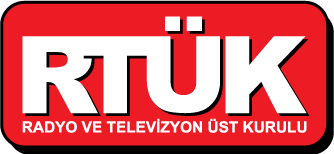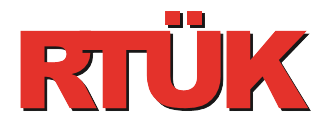Council of Europe (CoE) Activities
European Convention on Human Rights
Convention for the Protection of Human Rights and Fundamental Freedoms prepared by the Council of Europe (shortly European Convention on Human Rights – ECHR) was signed in Rome in 4 November 1950 and entered into force in 3 September 1953. Turkey also immediately approved the Convention in 10 March 1954. Article 10 of ECHR is the source of both European Convention on Transfrontier Television and the Law No 6112 on the Establishment of Radio and Television Enterprises and Their Media Services.
European Convention on Transfrontier Television
The aim of the European Convention on Transfrontier Television as an International Convention form prepared by the Member States of the Council of Europe within the framework of “freedom of expression and information” principle stipulated under the Article 10 of the European Convention on Human Rights is to provide free transmission of transfrontier television broadcast between Party States in line with the common rules determined and to provide unification principles and implications in the field of television between member states.
European Convention on Transfrontier Television which was opened for the signature of the Member States of the Council of Europe in 5 May 1989 and entered into force in 1 May 1993 in the five member states including Turkey, was signed by our country in 7 September 1992 and entered into force in 1 May 1994 within the framework of the Article 90 of our Constitution.
Additional Protocol including amendments of the Convention whose first revision studies which were made in parallel with the technological developments and needs, entered into force in March of 2000.
The second amendment process of the Convention was completed in 2009 but as a result of the interference of European Union adoption and signature process in the Committee of Ministers was frozen.
Council of Europe Activities
The Radio and Television Supreme Council has been following up the studies of the Council of Europe on the media field on behalf of the Republic of Turkey since 1994 as the Ministry of Foreign Affairs delegated the mission to RTÜK in this field.
Ministerial Conferences
The Council of Europe Ministerial Conference responsible for Media and Information Society is organised once in a period of four years and perform studies on a topic in the media field determined according to legal and technological developments. In the conferences both the studies of past 4 years are evaluated and for the future targets for the next 4 years are determined. The previous Ministerial Conference was held under the title of “Freedom of Expression and Democracy in the Digital Age” in the capital city of Serbia, Belgrade on 7-8 November 2013.
The Steering Committee on Media and Information Society (CDMSI)
The Steering Committee on Mass Media (CDMM) has been established in 1981 in order to carry out studies in the media field under the Council of Europe and it has done its mission until 2005. The Steering Committee on Media and New Communication Services (CDMC) was established in 2005 by taking into consideration the legal and technological developments in the media field and it continued its studies up to 2011 which were the follower of its successor CDMM. Steering Committee on Media and Information Society which was established as the follower of CDMC and held its kick off meeting in the beginning of 201, is still continuing its studies.
CDMSI assigned by the Committee of Ministers of the Council of Europe to implement studies in the field of media is carrying out its studies for the protection of the freedom of expression and information stipulated under the Article 10 of the European Convention on Human Rights and bringing up a standardisation to its legislation and implementation between the member states. Additionally the case-law of the European Court of Human Rights in relation with the Article 10 is also taken into consideration in these studies. This committee with its meetings every each year negotiates on the Declarations, Recommendations and Guidelines that have been prepared by the Committees of Experts, works under it and presents them to them Committee of Ministers. Representatives of the member states, observer countries and institutions and NGOs participate the meetings of DMSI.
A Bureau has been formed as composed of 7 representatives from member states including Chairperson and Vice Chair of CDMSI in order to facilitate and speed up the studies. The members of the Bureau are elected for a period of 2 years by the CDMSI among representatives of the member states. The term of the members of the Bureau cannot exceed 4 years. Bureau meeting is held one month before the CDMSI meeting and prepares agenda for the issues to be discussed.
The Standing Committee on Trans-frontier Television Convention (T-TT)
The Standing Committee of the European Convention on Trans-frontier Television which was established according to the Article 20 of the Convention started its work in June, 1993. This committee monitors the implementation of the Convention by the parties, discusses problems borne out by the implementation of the Convention, formulate opinions through the interpretation of the provisions of the Convention and prepares recommendation when needed. This committee monitors technological and political developments in the media field as well. RTÜK experts from the Department of International Relations regularly participate in the meetings of this Standing Committee held twice a year and make contribution to its studies. The Chairmanship of the Standing Committee has been performed since 2008 by the expert responsible for the Standing Committee meetings as well.
Committees of Experts
Three new committees of experts have been established for the period of 2022-2023 in accordance with the decision taken in the last meeting of Steering Committee on Media and Information Society (CDMSI) in the end of 2021.
- Committee of Experts on Increasing Media Resilience (MSI-RES) is tasked with preparing a set of guidelines on the use of digital tools including artificial intelligence (AI) for journalism and a collection of good practices for sustainable media financing.
- Committee of Experts on the Integrity of Online Information (MSI-INF) is tasked with preparing a guidance note on countering the spread of online mis- and disinformation through fact-checking and platform design solutions in a human rights compliant manner.
- Committee of Experts on Strategic Lawsuits against Public Participation (MSI-SLP) is tasked with preparing a recommendation on strategic lawsuits against public participation.


